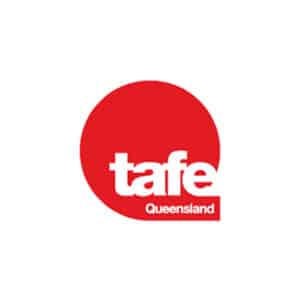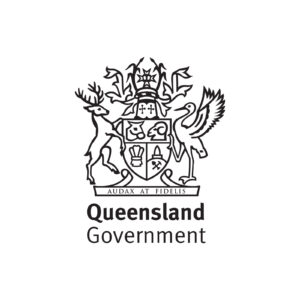As Football Queensland’s successful FQ Academy Club Development and Assessment program enters its sixth year of implementation, FQ has continued to focus on measuring progress to determine any adjustments required to further align with global best practice.
Earlier in 2024, FQ engaged Double Pass, a globally recognised and market leading football advisory company to conduct an international benchmarking, assessment and process audit of FQ’s statewide Academy system.
Boasting over two decades of experience in league quality assurance and club development, Double Pass, a company consisting of over 75 football experts, has worked with elite football bodies across the world including the Italian Football Federation, English Premier League, FIFA and the Bundesliga & German Football Federation.
“Engaging Double Pass was a strategic decision that reflects Football Queensland’s commitment to building a world-class, sustainable football development and talent ID ecosystem. We are exposing ourselves to international, independent assessment, to be measured and compared against the world best because our goal is to continuously refine and evolve our technical system, advanced leagues and programs, ensuring they meet the highest global standards to nurture the next generation of Matildas and Socceroos. We are still in the early phases of our journey of technical evolution in Queensland,” Football Queensland CEO Robert Cavallucci said.
“Between August and December, Double Pass undertook a comprehensive analysis of FQ’s technical environment and strategy, conducting extensive surveys and interviews with stakeholders, visiting clubs, and collaborating closely with FQ staff during the on-site review phase, with the goal of identifying key areas of focus, ensuring FQ remains aligned with global best practices.
“As part of our commitment to the ongoing development and improvement of Queensland’s football ecosystem as per our 2023-2026 One Football Strategy within the ‘Elite Team & Pathways’ pillar, the adopted recommendations supplied by Double Pass will see gradual implementation across the FQ Academy structure, ensuring we remain aligned with international benchmarks in quality assurance, keeping Queensland the premier state for junior and youth football development in Australia.”
Double Pass’ comprehensive review has highlighted that “FQ’s club development and assessment serves as an excellent and strong foundation for creating youth academies that operate to achieve global best practice.”
Double Pass also outlined that “FQ is pioneering football quality assurance in Australia using extensive content to evaluate and benchmark clubs to deliver technical objectives.”
“The recent engagement of Double Pass to conduct a comprehensive audit and analysis of our statewide FQ Academy, Club Development and Assessment systems and FQ Academy competition structures saw our statewide football pathway benchmarked against some of the best football development practices across the world,” FQ General Manager – Football & State Technical Director Gabor Ganczer said.
“The expert team, led by Hans van der Elst and Jelle Van Camp, recognised the FQ Academy as a leader in football quality assurance in Australia, while also identifying additional areas of focus for best practice, conducting a detailed gap analysis, and providing initial recommendations to ensure sustained success.
“Subject to ongoing resource assessments, participants across the state will begin to see changes within macro areas such as the Model, Environment, Strategy, Management, Quality Assurance, Club Development, Rewards & Protection and Data & Technology.
“As we begin to gradually implement these recommendations over the coming seasons, FQ will remain engaged in stakeholder discussions with clubs as we review and explore the opportunities that lie ahead for Queensland football, including continuing to investigate future collaboration opportunities with Double Pass.
“These enhancements will be designed and applied with the core mission of strengthening Queensland’s proud football legacy, ensuring that the next generation of local talent continues to shine on our national teams and in the world’s premier leagues.”
Football Queensland will work with Double Pass to introduce changes across the following main areas of focus:
- Potential separation of the Club Development and Quality Assurance functions to deliver better club support.
- This was a planned FQ milestone and while cost prohibitive in the start-up phase, may now be possible as part of this suite of changes.
- Objectivised assessment with increased data driven approach, standardised evaluator training and changing multi-assessor view.
- Built around Point 1, introduce specialised assessor / auditor specific training to further improve audit function
- Progressive introduction of a Two-Year Assessment Cycle where possible.
- To reduce FQ resource loads they may be redeployed to provide further direct club technical development support, lowering the compliance requirements of clubs from annual to biannual. FQ is considering an incremental process to enable this.
- Increase focus on Individual Player Development & Delivery in the youth academies.
- Amend elements of the assessment rubric to further reflect this.
- Further assessment stretching opportunities for aspirational clubs.
- Incrementally add 4-point scenarios to further evolve high scoring clubs for continued progression in key assessment areas.
- Minimum shield thresholds within each shield rating and higher scoring options in key areas.
- Amend the threshold from a single-entry milestone to include sub milestones within specific assessment areas to ensure stronger compliance to shield standards.
- Amend the threshold from a single-entry milestone to include sub milestones within specific assessment areas to ensure stronger compliance to shield standards.
- Increase support for high achieving clubs with a tailor-made development service, assisting new clubs in compliance and process engagement.
- Evolve resourcing model to allow for higher levels of service provision.
- Educate technical leaders through specific courses to understand international benchmarks and best practices.
- Introduction of Masterclass education systems.
- Tightening of league composition.
- Restrict higher leagues with lower numbers or potentially consider a move to shield-based scenarios.





















